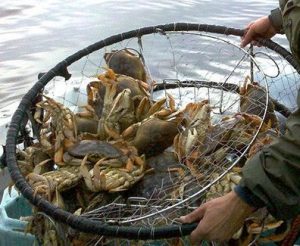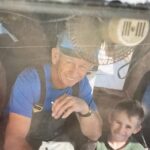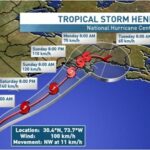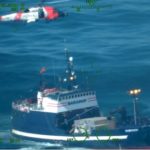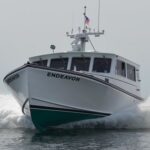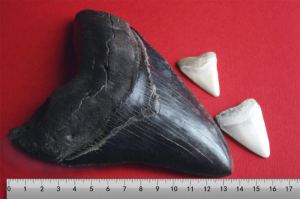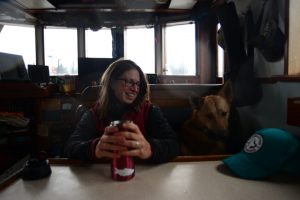Category Archives: Pacific
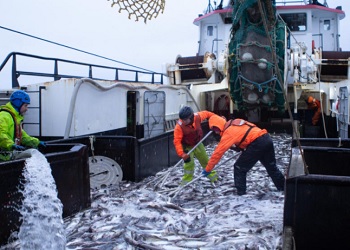
$350M Bering Sea fish fight could hinge on a miniature Canadian railroad
The quickly escalating saga involves hundreds of millions of dollars in fines, and a miniature Canadian railway,,, American Seafoods’ shipping subsidiary and an affiliate company, Kloosterboer International Forwarding, sued U.S. Customs and Border Protection in federal court Thursday,,, The Jones Act, a century-old federal law, typically requires American-flagged ships to move cargo between American ports. But the legislation contains an exception known as the “Third Proviso,” ,,Vessels flagged in countries like Singapore and the Bahamas first pick up frozen seafood products in Dutch Harbor, then travel to the Canadian port of Bayside, New Brunswick, just across the border from Maine. From Bayside, the seafood would be trucked to a Canadian train, loaded and moved 20 miles between two stations,,, >click to read< 14:10
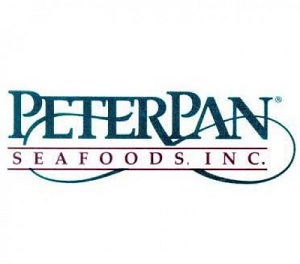
Peter Pan Seafoods to require employees to be vaccinated
A seafood processing company with operations in Alaska and Washington state will require its employees to be vaccinated,,, The policy will be enacted in tiers. The first tier includes employees at company headquarters in Bellevue, Washington; the Seattle warehouse; Alaska processing facilities in Valdez, Port Moller, Dillingham, and Alaska support centers in Dillingham, Sand Point and Naknek. >click to read< 09:54
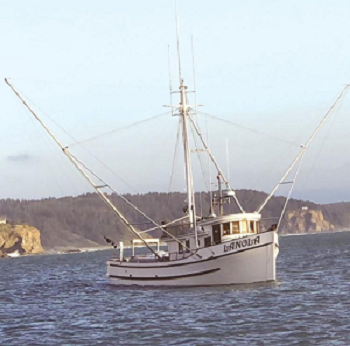
Fisherman saved by OSU research vessel when his fishing vessel went down in heavy seas
Frank Akers, 70-year-old owner and operator of the 50-foot F/V Lanola, said he was about 38 miles west of Newport heading eastbound in heavy seas at about 10 p.m. on Aug. 28, when the first of a series of waves collided with his vessel, giving him only minutes to escape. Akers said he believes the first wave that struck the vessel had a log in it because he heard a crash. After the second wave hit, he looked back and saw his stern go under. His bilge alarms went off and he radioed a mayday call. >click to read< 21:06
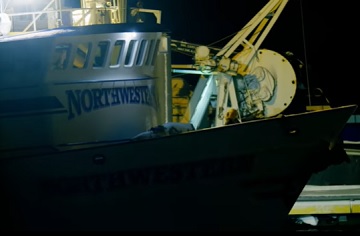
Captain Sig Hansen on riding out the Coronavirus pandemic on the Bering Sea – What a Time to be Alive.
F/V Northwestern Captain Sig Hansen says at the height of the pandemic, he and the crews felt “blessed,” because their work was deemed essential. “I’ve had friends that are on other fishing vessels that literally did not leave their boats for eight to nine months, they could not step on land,” “The state of Alaska, we went through our own COVID regulations. You’ve got federal, state, and then every harbor has its own set of regulations as well. So, quite honestly, we were so fortunate to be able to go out there and go to work, you know.” video trailer, >click to read< Deadliest Catch airs tonight at 8 p.m. on Discovery 13:18
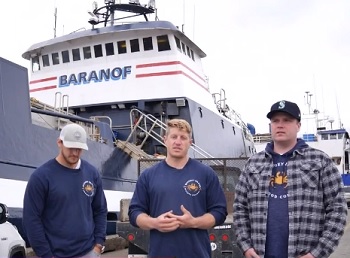
Whidbey Island Seafood Company. They sell seafood that’s “dock to doorstep”.
Brothers Andrew and Adam Hosmer practically grew up on the water, with a dad who captained the Baranof fishing boat through the icy waters of Alaska. “We grew up with that and we grew up on the water sailing and became obsessed with fishing ourselves,” While neither planned to return to the water when they got older, the Baranof called their names. With the help of their childhood friend Devin, the two decided to start a fishing business, with a twist. “Almost one hundred percent true traceability on every product we offer,” >click to read< 09:41 Visit whidbeyseafoods.com
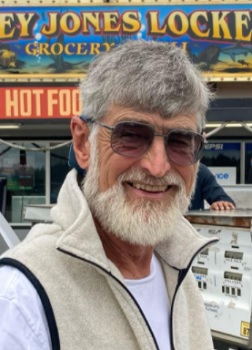
50-year commercial fisherman Mike Lane has passed away
Michael Don Lane, a long-time Bandon resident, passed away in his home during the Perseid meteor shower on August 14, 2021, Mike graduated from Auburn HS in 1967 and went to work for Northern Pacific Railroad before enlisting in the U.S. Coast Guard,,, After the Coast Guard, Mike briefly returned to Washington and his railroad job before giving in to his love of the sea and returning to Charleston. Thus began his 50-year career as a commercial fisherman. In addition to attending his children’s activities and commercially fishing Dungeness crab and salmon, Mike served his community in many ways. He was a member of the Oregon Dungeness Crab Advisory Committee, a commissioner on the Oregon Salmon Commission from 1992–2002, a member of the Rules Advisory Committee for ODA and ODFW, involved with the Oregon Dungeness Crab Commission,,, >click to read< 18:55

Mismanaged Since 1949! – A primer on fishing failures
Both the federal and municipal elections heighten our interest in whether or not fishery issues will, at last, be tackled in this province. Perhaps those running for elected positions need a primer on how our fishery was decimated over the past 70 years since Canada took over management of this resource following Newfoundland and Labrador’s Confederation entry in 1949. Hopefully, it will counter the current PR that is being disseminated by DFO, which wants Canadians to believe that it is not the department that has failed our province and our communities, but that the destruction has come from climate change, changes in water temperatures and other uncontrollable factors accounting for the demise of our once great fishery resource. There are still many, including myself, who have worked in the industry all these decades and witnessed first-hand and know full well that DFO has mismanaged our fishery since 1949. >click to read<, By Gus Etchegary, St. John’s 13:30
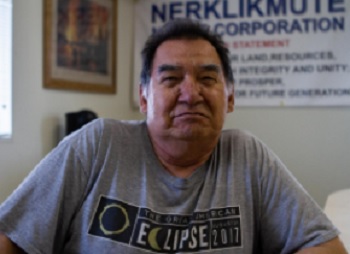
Why Are The Chum Runs So Low? It’s not just an Alaskan/Yukon phenomenon.
The State of Alaska has closed fishing for chum to protect the runs. For Yukon River families, chum is particularly important. Chinook salmon have been low for decades, but chum were the fish families could depend on until last year, when the summer chum run dropped below half of its usual numbers. This year the run dropped even further, to record lows. Biologist Katie Howard with the Alaska Department of Fish and Game said that the chum declines are not just occurring in the Yukon River. “When we talk to colleagues in the lower 48 and Canada, Japan, Russia, they are all reporting really poor chum runs. So it’s not just a Yukon phenomenon. It’s not just an Alaska phenomenon, but pretty much everywhere,” So why are the chum numbers so low? The short answer is no one really knows for sure. >click to read< 10:38

The Shocking Amount of Money Sig Hansen has Made from “Deadliest Catch”
Reality television is popular. It’s so popular that there seems to be a show for just about everyone. From watching housewives and their drama unfold to watching people bake and cook to watching them compete to be the best singer or performer in the world, there is no shortage of reality entertainment on television.,, The Discovery Channel brought its own drama to television when they debuted this show, and it’s made people such as Sig Hansen not only famous but quite wealthy, too. Just how much money has this boat captain made over the years? Let’s find out. >click to read< 13:44

Bad faith, beads and trinkets negotiations by DFO obstructs court-affirmed fishery
The lack of good faith negotiations by Fisheries and Oceans Canada in its dealing with five First Nations on the West Coast could result in the criminalization of Nuu-chah-nulth fishers who exercise their court-affirmed right to a commercial fishery, asserts First Nations leadership. “The federal department of Fisheries and Oceans (DFO) continues to stonewall negotiations and acts as if it is above the law,” reads an Aug. 24 press release from the five nations impacted, Ahousaht, Hesquiaht, Ehattesaht/Chinehkint, Mowachaht/Muchalaht and Tla-o-qui-aht. The nations have said they will fish according to their own fishing plans, pitting Nuu-chah-nulth fishers against DFO officers patrolling Nuu-chah-nulth waters, because DFO hasn’t come to the table to negotiate a plan for the season. >click to read< 08:14
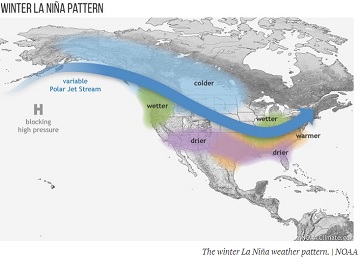
NOAA Predicts 70 Percent Chance of Rainy La Niña Weather Across the Pacific Northwest
The drought-stricken Pacific Northwest is expected to see heavy rainfall in the coming months, scientists say. The NOAA predicts that the La Niña weather pattern could emerge as early as August, and have the potential to dump heavy rainfall across Pacific Northwest throughout the 2022 winter season. The storms will likely provide relief for much of America’s Northwest, which is currently experiencing various stages of intense drought. Video, >click to read< 10:59
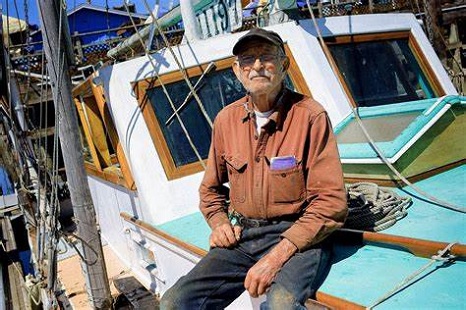
A Florence Fable – A 93-year-old fisherman and his 108-year-old fishing boat, Otter
Retired commercial fisherman Walter Fossek, a high school dropout from Springfield, sits portside on his 52-foot boat with a glamorous past, known as the Otter. As people walk by, he says hello and chats with them about the happenings of the dock, where he spends his days maintaining the Otter bow to stern and reminiscing on a life full of crab pots and peach trees. At 93, Fossek has the wizened, tan appearance of someone who has spent decades on the water. He wears a battered baseball cap to protect his bespectacled eyes from the sun, and his hair is pulled back in a thin gray ponytail. photos, >click to read< 09:02
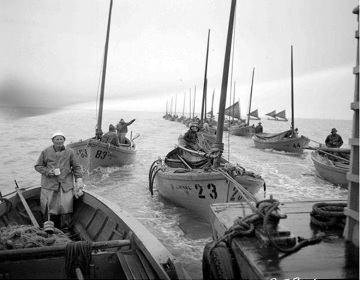
When Sailboats Ruled Bristol Bay
One hundred and thirty-two years ago, the Bristol Bay commercial fishery began on the shores of the Nushagak River when the first cannery went into operation and canned a little more than 4,000 salmon. Within four years, three more canneries appeared on the Nushagak, and within a decade canneries were built on the Naknek and Kvichak rivers. The dawn of the 20th century saw dozens of canneries around Bristol Bay catching, processing and canning millions of pounds of sockeye salmon every summer. By 1910, Bristol Bay accounted for 40 percent of Alaska’s commercially caught salmon. Even today, Bristol Bay makes up about 40 percent of Alaska’s salmon value. photo’s, >click to read< 11:50

Sign The Petition: SAVE OUR OCEAN from the HUGE mistake of offshore windfarms in California!
California is preparing to make a grave mistake by allowing offshore windfarms to be built. The promise of green energy is the driving force behind this decision. The truth is, this is not green at all! The ocean is the last place we need to place windfarms. There are many more disadvantages than advantages to placing these floating wind turbines on the ocean. The environmental impact will be devastating to fish, birds, whales, other sea creatures, sport and commercial fisherman and families, and to the beautiful ocean itself. >Click to read<, Thank you for signing and help spread the word! By Michael Cohen
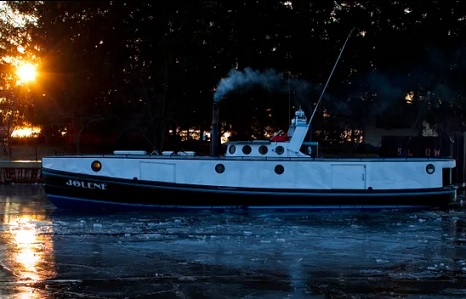
The last in a long line of Milwaukee commercial fishermen sets course for Alaska
The men have always started their day wondering whether a load of fish is straining the nets that they set the day before. Today their compass doesn’t point them toward any nets at all. The boat’s rumbling 855 Cummins diesel pushes them down the muddy Kinnickinnic River and under the Hoan Bridge. This is the moment when their eyes normally train on the open waters ahead. But today, the 52-year-old man notices his dad, Alvin, is glancing back. I think this is probably going to be the last time I see Milwaukee from the water, 77-year-old Alvin Anderson says. Yeah, his son, Dan, replies glumly. Then Milwaukee’s last working commercial fishing tug – the Alicia Rae – glides through the north gap of the Milwaukee Harbor breakwater. And it is gone. 20 photo’s, >click to read< 08:10
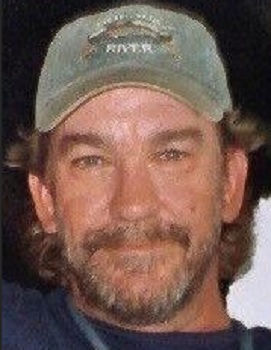
Jason Daniel Campbell has passed away
Jason Daniel Campbell, 60, was born to Daniel and Barbara Campbell August 12, 1960, in Coos Bay. He died September 16, 2020, at Sacred Heart Medical Center. Graveside services will be held 11 a.m. Saturday, August 28, 2021 at Reedsport Masonic Cemetery, where we will share stories of his life. Jason commercial fished much of his life. Beginning as a deck hand for his father from a very young age, then having his own vessel for a while before moving to work as a deckhand, including on Alaskan fishing vessels for a few years. He worked on one of the fishing vessels that was showcased on Deadliest Catch, prior to the first season. >click to read< 09:05
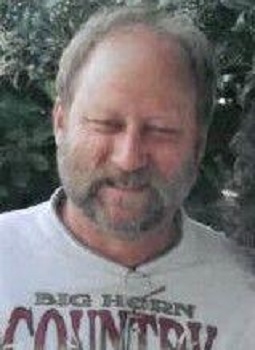
Retired Commercial Fisherman Terry L. Huff of Juneau, Alaska, has passed away
Terry was mostly raised in the Coos Bay, Oregon area where he attended school. After high school in 1975,Terry joined the US Army. After he was released from the Army he returned to Coos Bay and attended SWOCC for Automotive Repair. Terry then went to work in the commercial fishing industry. He worked on the docks in Charleston and eventually went to sea and worked as a deckhand. He then for the next several years, skippered Korean boats off the coast of California. Terry eventually made his way to Craig and then to Juneau, Alaska where he continued in the commercial fishing industry. He lived there for many years. Terry’s health declined and he was forced to retire. >click to read< 21:17
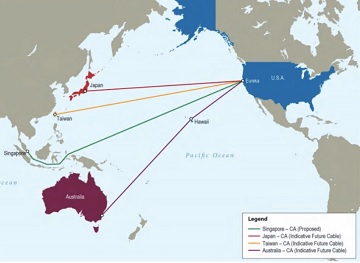
California Coastal Commission OKs world’s longest fiber optic cable from Eureka to Singapore
Stretching from Eureka to Singapore, the 10,000 mile long cable will bring enhanced broadband connectivity to Humboldt County and beyond as soon as 2023. RTI plans to install four steel pipes extending from a landing site in Samoa approximately 3,600 feet offshore to serve as conduits for two submarine fiber optic cables. Additional cables may extend to Australia and Japan as well. North Coast commercial fisherman Kevin Collins expressed concern for the trawling fishermen who, he feels, will be “the primary group impacted by the cable.” Humboldt Fishermen’s Marketing Association was not looking to oppose or delay the installation of this cable but wished to express “grave concerns California fishermen have over the flawed process taking place for the mitigation” of the project. >click to read< 13:45
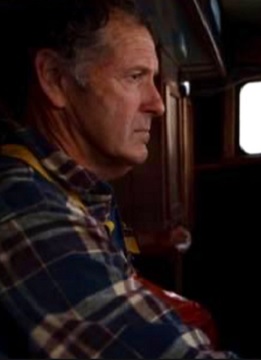
Legendary Commercial Fisherman Michael D. McHenry has passed away
“You can have that boat if you want to re-float it.” That was all Michael had to hear. He began his fishing career at age 15, fishing in the summers until he graduated from Half Moon Bay High School in 1961. After that, he went full time on the water going down to Three Rocks every day and coming in with a boat full of ling cod. In 1965, Michael bought the F/V Pescadero and continued his career, now as a salmon fisherman. When his abilities outgrew that boat, he built the Merva W and launched her in 1971. The legendary “Blue Boat” was named after his mother, Merva Wilson. She is a steel, 65-foot salmon/crab/albacore fishing boat. He made a name for himself throughout coastal California and Oregon as a fun-loving Irishman and a salmon fisherman extraordinaire. Fishermen were drawn to him as a natural leader and he led a following of fishermen nicknamed “The Z Squad.” >click to read< 18:47
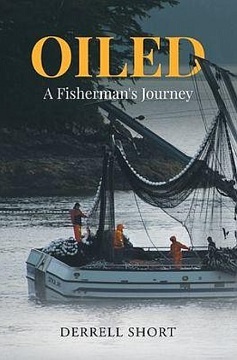
“Oiled: A Fisherman’s Journey”
Derrell Short, a former fisherman, has released his memoir, covering everything from the Exxon Valdez oil spill to his adventures at sea in Kodiak Island, Alaska. Short covers not just the mishaps of working on a crab boat, but also how he worked on the Exxon Corporation oil spill in 1989. An Exxon tanker had run aground on Bligh Reef in Prince William Sound, an inlet in the Gulf of Alaska, Alaska. The tankard had been transporting crude oil from Valsez, Alaska, to California. Short covers the spill in his memoir and criticizes Exxon on the cleaning up of the oil spill.,, Other sections of the memoir focus on Short’s building his remote cabin, hunting, his many encounters with bears and his time as a fisherman. >click to read< 10:28
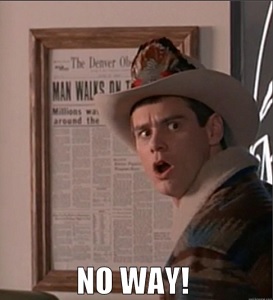
Offshore wind farms will have ‘major’ impacts on commercial fishing. Meanwhile, in New Bedford,,,
Development of the South Fork Wind Farm off the coast of Rhode Island would will have an overall “major” adverse impact on commercial fishing, according to a newly released federal study.,, Mark Philips, a commercial fishermen operating out of Greenport, cast doubt on the notion that climate change and fishing presented greater threats than the turbines themselves to his fishing activities.,, With wind farms planned from Maine to North Carolina, he sees his fishing options collapsing, even if, as the study points out, planners identified and excluded the most productive fishing grounds from the wind-energy areas. >click to read< – New Bedford fishermen, officials question New York offshore wind areas as auction nears >click to read< – 09:24

Offshore Wind Farms: Wind is not the answer, it’s a false dream of unreliable energy
The plan to construct a wind farm offshore of Morro Bay is based on a whole lot of hope and not much credibility.,, The American Jobs Plan is not destined to fulfill a lasting solution to economic stability in San Luis Obispo County. There is no factual or reasonable replacement for Diablo Canyon. There’s nothing to replace the amount of sustainable, constant, reliable clean energy supplied by Diablo Canyon. There’s nothing to replace the 1,500-plus full-time positions. The New Green Deal may be green but not a good deal! There’s no receiving something 100 percent if it’s not available 100 percent. >click to read< by Ellie Ripley 14:14
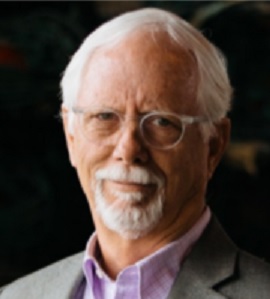
Port San Luis commissioner continues bullying, harassment
Shortly after the Port San Luis Harbor District agreed to pay a $150,000 settlement over allegations of bullying and harassment, Commissioner Bob Vessely doubled down again releasing a copy of a confidential document from closed session. Vessely emailed the document to Chris Pavone, head of the professional fisherman’s association with the comment, “Just for your amusement, feel free to share.” Vessely’s email was forwarded to more than 50 commercial fishermen. >click to read< 13:11
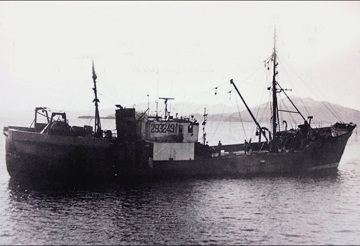
Earthquake may have triggered sunken F/V Saint Patrick to spill diesel off Kodiak Island
A shipwreck from decades ago has begun leaking diesel fuel off Kodiak Island. “We know that this is a vessel that sank in 1989 in Women’s Bay and it’s been resting there since,” Jade Gamble, the state’s on-scene spill coordinator,,, “It started leaking after the earthquake.” She says it’s not clear how much diesel and other contaminants are on the former fishing vessel F/V Saint Patrick. The former scallop boat was hit by a rogue wave during a stormy November night in 1981 near Marmot Island. The captain ordered the crew to abandon ship; only two of its 12 crew members survived the frigid waters. >click to read< 09:18
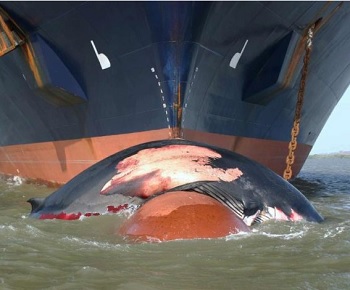
While cargo shipments boom, ship strikes imperil whales in California and worldwide
Earlier this year, horrific photos of two fin whales pinned to the hull of an Australian naval ship gained worldwide attention. The vessel had been conducting exercises in the waters near San Diego. The two bodies, one 65 feet long, the other just 25 feet, were draped over the hull. “Anywhere you have major shipping routes and whales in the same place, you are going to see collisions,” said Russell Leaper, an expert with the International Whaling Commission. “Unfortunately, that’s the situation in many places.” While gray whales and humpbacks make up 70% of the reported strikes in the government’s database, it’s the endangered and threatened populations such as North Atlantic right whales and the gargantuan Pacific blues that concern scientists the most. For those whales, each death comes with a risk of population or species extinction. >click to read< 12:06
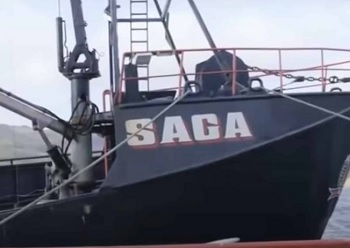
What Happened To the F/V Saga? Here’s what’s going on.
“Deadliest Catch,” is currently knee-deep in its 17th season and rapidly approaching the 300 episode mark. In that time, the series has taken viewers on expeditions across the Bering Sea,,, For the first few episodes of “Deadliest Catch” Season 17, The Saga was nowhere to be found. Some fans questioned if Captain Jake Anderson’s vessel finally sank, and others pondered whether or not it was merely being repaired for unknown reasons. All of this speculation was put to bed when it reemerged in the episode “Restricted Zone,” which aired on May 25, 2021, with its absence never fully explained. >click to read< 15:43
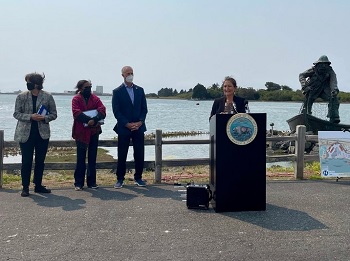
Haaland, politicians visit Humboldt Bay to discuss offshore wind farms that will create jobs and stuff!
U.S. Secretary of the Interior Deb Haaland and White House Council on Environmental Quality Chair Brenda Mallory were joined by Huffman and California Energy Commissioner Karen Douglas. The foursome stood in front of the fisherman statue, with Humboldt Bay at their backs and a breeze blowing in from offshore. “Since the first days of this administration, President Biden has been committed to confronting climate change, creating thousands of good-paying union jobs and paving the way for the nation’s transition to a cleaner energy future,” Haaland said, adding that offshore offshore wind is a critical component of that agenda. >click to read<, and the press release, >click here to read< 13:18
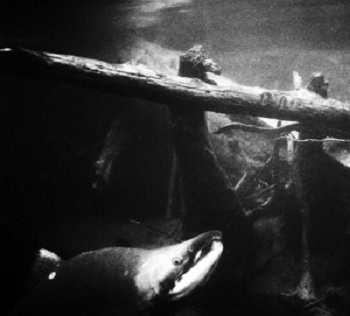
A virus that flourishes in fish farms is now threatening wild populations.
Wild salmon in British Columbia are in trouble. According to one estimate, some populations have dropped by as much as 93 percent since the early 1990s. Lately, the situation has grown dire.,, Last year, the number of sockeye returning to spawn in the Fraser River crashed to a record low. It’s hard to say exactly why this is happening, though logging, climate change, and overfishing all seem to play a role. Among the most controversial potential factors, however, is the virus Piscine orthoreovirus, or PRV. The virus isn’t necessarily fatal, but infected fish may be weakened and unable to swim as fast, making them more likely to be eaten by predators or fail to migrate upriver in order to spawn,,, Not everyone agrees. Among the dissenters is Fisheries and Oceans Canada-DFO,,, >click to read< Killing Sea Lions to Save the Salmon, February 1,1925, Dorothy G. Bell, >click to read< 19:39

Grant: Researchers to find ways to prevent injury in the Dungeness crab fishery
The grant from the National Institute for Occupational Safety and Health, totaling $895,000 over the next three years, will allow OSU professors Jay Kim and Laurel Kincl to build on existing research with the Dungeness crab fishing industry, where workers suffer high rates of both fatal and non-fatal injuries. For their upcoming study, Kim and Kincl will look specifically at the configuration of the “block,” the mechanized winch that pulls up the line of crab pots out of the water and swings them into the boat; and the crab sorting table, where crabs are sorted after being brought up from the water. >click to read< 18:18






